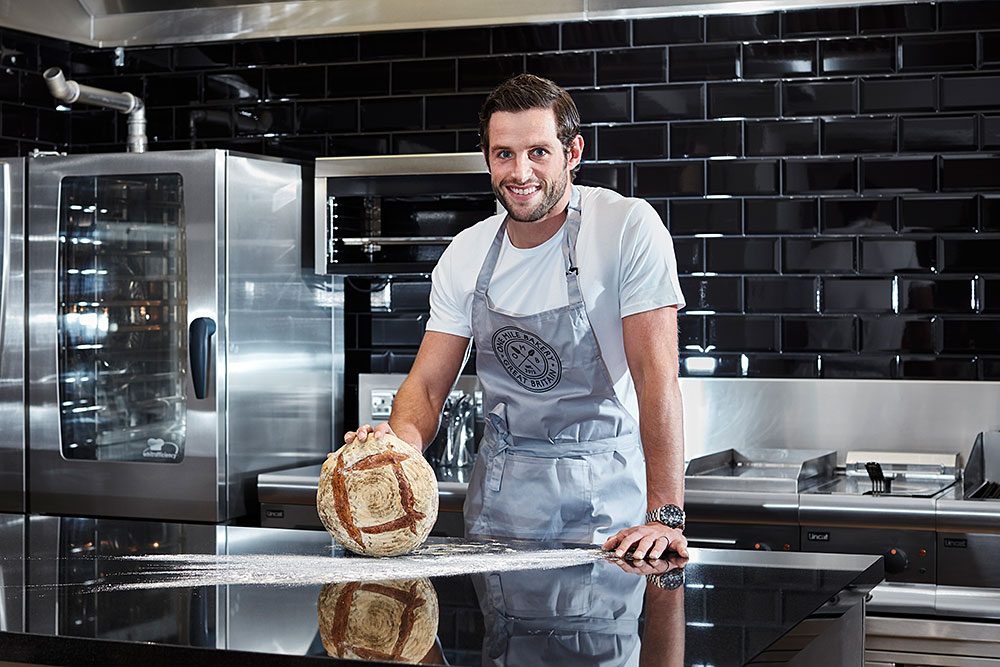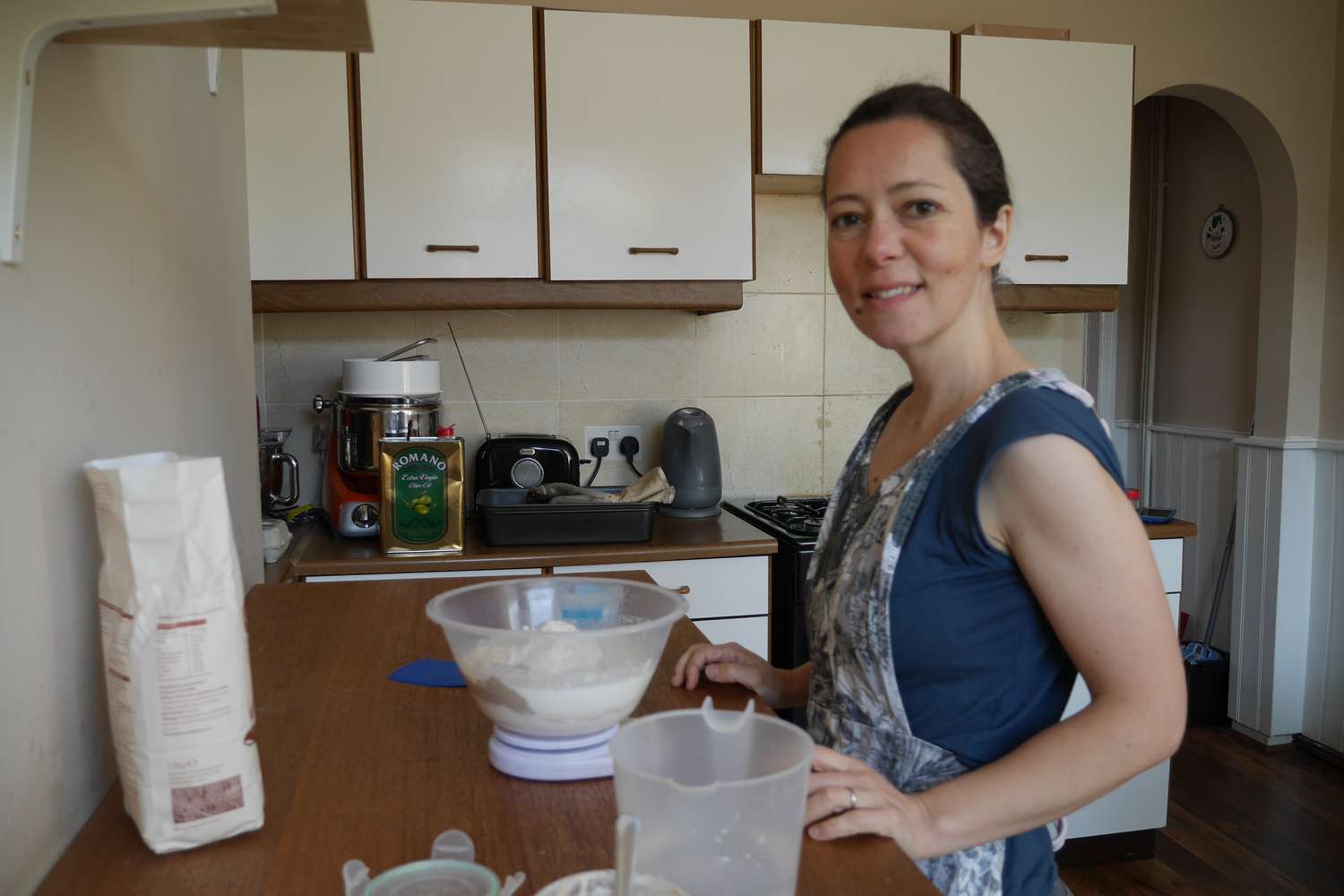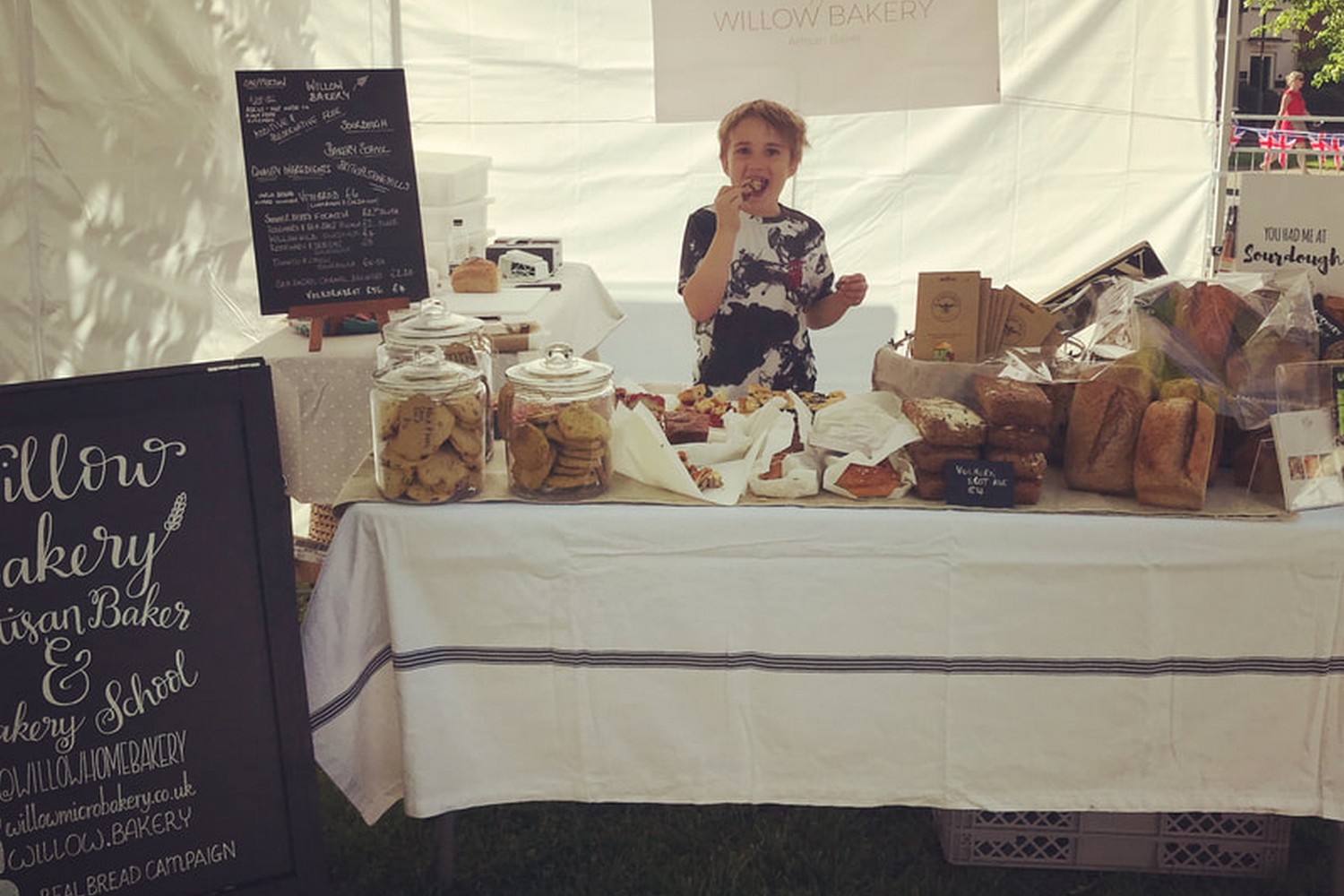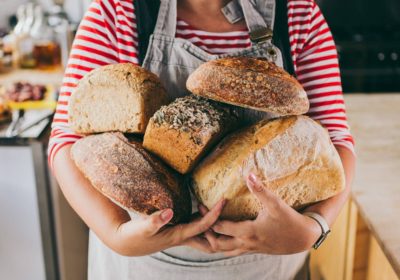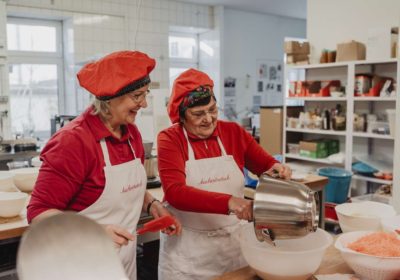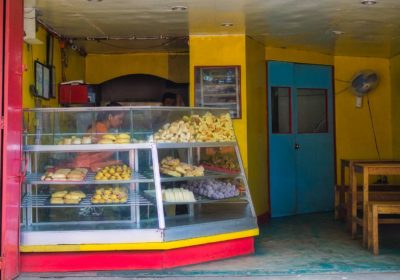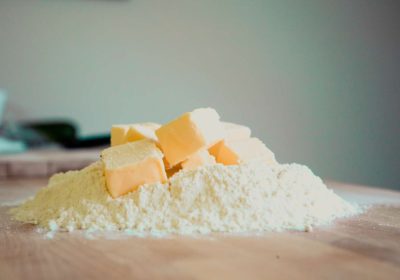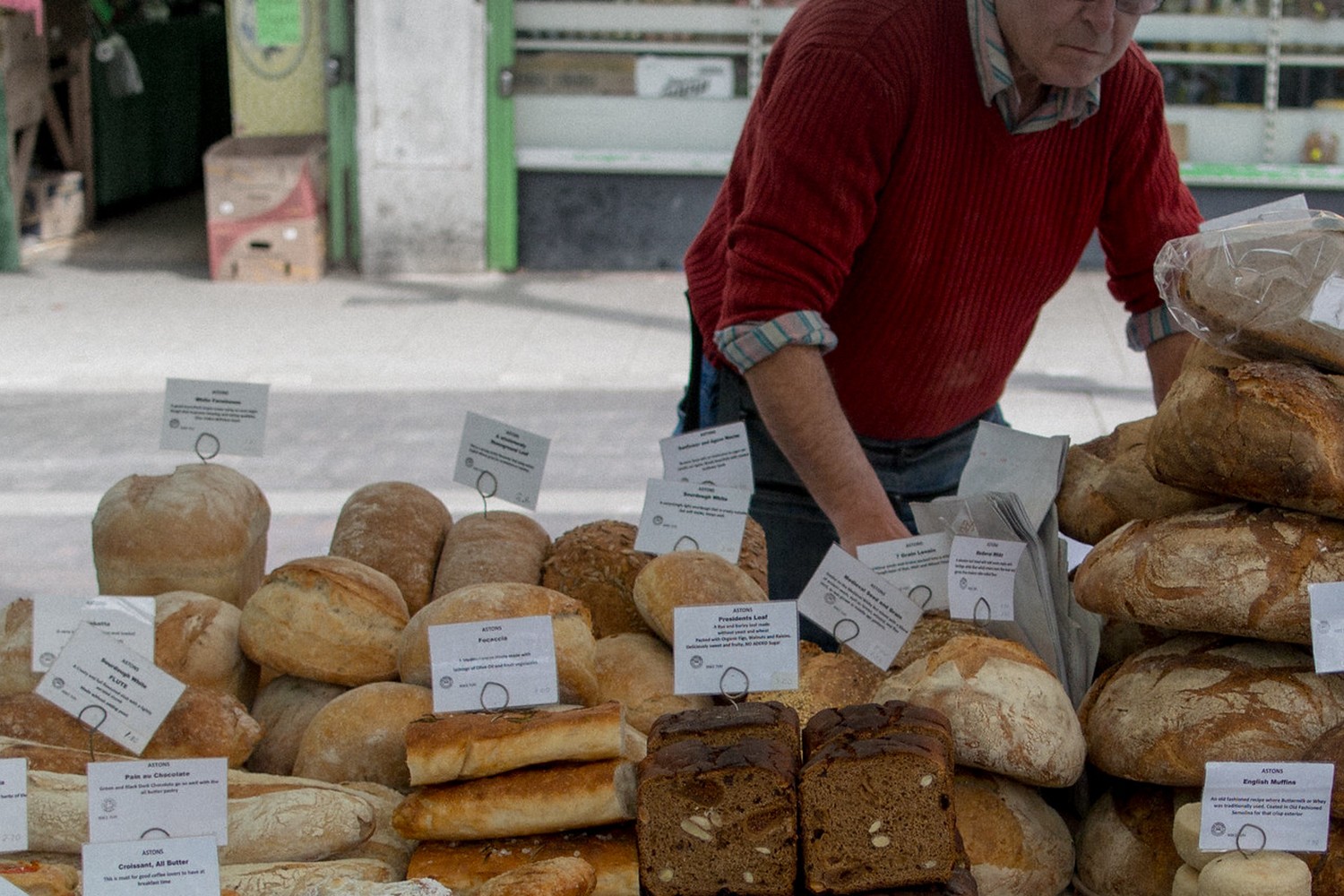
Kitchen tables, adapted garages and cellars have become bakeries. They bake a range of high-quality products, with zero-miles freshness and to order, which are then snapped up by a local customer base who appreciate the effort and attention to detail that goes into a simple loaf. In many cases there are pastries. Sometimes cake. Even soup. But, how do you set up a microbakery and why would you want to?
Quite apart from cake bakers and decorators, making pieces of art for birthdays and weddings, microbakeries tend to mimic the dynamics and product ranges of bigger retail bakeries, working with natural leavens and professional techniques to craft sourdough loaves, croissants, sticky buns and everything else in between. So, for anyone with a love for all things dough, perhaps tired of the day job, it’s very tempting to jack it all in, or supplement an existing income by setting up at home and feeding the local community. According to existing microbakers, the first step in working out if the leap is likely to succeed is some self-reflection.
The One Mile Bakery in Cardiff, established by journalist and baker, Elisabeth Mahoney, but now run by professional rugby player, Nick Macleod, is now the centre of a small microbakery empire. But, for Nick, success stems from the baker’s personal attributes, saying: “You have to have a passion for the product you want to deliver. You need dedication and self-discipline as depending on your particular operation, it is often long hours working alone.” He is also at pains to remind bakers that the capability doesn’t come overnight, adding: “Honing your skill so that you can produce a high quality, consistent bake is important for retail.”
Being a good baker is vital. That much might seem obvious, with microbakers having to go from hobbyist to meeting the pressure of putting good food on other people’s tables. Nicola Males set up her World Bread Award-winning Willow Bakery, selling at markets and for collection in Surrey, in 2018 and agrees that, without baking prowess, the vital ingredient in the mix is missing, saying: “Competency will give you confidence. Don’t start a microbakery without having done a lot of practice and get lots of feedback from family and friends on your bakes. I attended a Bread Angel course, and from there went to several professional courses at the School of Artisan Food.”
With supermarkets still being to ‘go to’ for the majority of families, a microbakery in their street might be an unusual offer when it comes to sourcing dietary staples and treats. According to Adam Keighley, also known as Kipton Baker working in Rothwell, West Yorkshire, explaining what you do is a vital, secondary skill, saying: “Apart from being able to turn out your chosen range of products reliably I think it’s important to have a clear idea of the purpose and scope of your venture and then be able to communicate this to your customers.”
The ability to tell people who you are and what you do isn’t limited to drawing in buyers, but also developing a support network, with Adam continuing to say: “I’ve also found social media invaluable for connecting to other bakers in terms of encouragement, learning and keeping abreast of current trends. The generosity and enthusiasm shared between bakers who share the same passion for what they do is remarkable.”
Passion to accompany practicality is what has driven others to take the leap. Alexandra Vaughan of Wakefield’s Crows Rest Bakehouse had a moment of profound realisation that baking was for her, saying: “I asked Adam Newey at The Hill Bakery, local to where I lived, if I could join him for a shift. He’s very generous and didn’t hesitate in saying ‘yes’ to having a complete stranger in his bakery, so a few weeks later I turned up at 7am to do a spot of baking with him. I left some five hours later, got home and started crying. I had loved every moment of it and to think that I might never work in a bakery again was heart-breaking.”
When it comes to the crunch, being a microbakery is being in business, and the numbers also need to stack up, with most bakers urging attention to detail, as well as passion for the job. Organisation is key. How much flour will need to be ordered? Where will it be stored? Where do the kids do their homework on bake days, when the kitchen table is covered in dough? Once that’s all been worked out, what do you practically need to get your first batch out of the oven and ready for collection?
“I started running my microbakery whilst living in a small one bedroom flat in London and working a full-time corporate job,” recalls Alexandra. “I had a regular, fan-assisted domestic oven and that was about that in regard to equipment. I think that the set-up cost was probably about £600, the larger part of this invested into going to a Bread Angels Microbakery Workshop. I am happy to say that by year end I had paid back that initial investment.”
It can be done in a domestic kitchen, at least from the start. However, as the orders start to really come in, other bakers haven’t been able to get by without necessary upgrades. In Cardiff, Nick Macleod has a trusty Rofco B40 bread oven and commercial mixer, with the Rofco B40 also being the backbone of the Kipton Bakery operation. Things don’t sound radically different for Nicola Males at the Willow Bakery, who is blessed with a garden bakery to keep business and home life separate, saying: “Essential equipment for me are: racking for cooling loaves, non-stick tins, baking trays, bannetons, an 8kg dough mixer and a Rofco bread oven. I struggled on for a long time using a KitchenAid and hand mixing, but using the mixer has saved a huge amount of time, as has the investment in the bread oven.”
Sourdough is still the word when it comes to the reason many turn away from bread and baked products that come from big factories. For microbakers, it’s a point of difference that still sits to the fore. Choosing a product range might be the next step after going through the personality, workspace and equipment checklist, or it might have informed any of the former. Whichever way round, there’s no doubt that getting it right is essential, so how should bakers make those decisions?
Adam Keighley advises: “I think the best products are those you can produce reliably and those which you like yourself. If you’re confident and enthusiastic about what you are offering this will transfer to your customers. I choose to offer a few products from my range each week and alternate the weekly choices for variety.” Of course, tastes change from community to community and amongst her Wakefield customer base, Alexandra Vaughan finds hunger for yeasted breads, diminishing returns on her naturally-leavened stock. For her it’s a case of being responsive to preferences and testing the market.
At the end of the day you decide what you love doing the most and where there is an opportunity in the market.
She says: “There are a lot of different products that could sell well, from breads to cakes and pastries to cookies. At the end of the day you decide what you love doing the most and where there is an opportunity in the market. If there are 10 different people offering cakes, it’s probably best to focus your efforts on other products.”
Making wild investments in sacks of flour and sugar are all very well, but the last thing an aspiring microbaker needs is a house full of both raw ingredients and crates of unsold bread and doughnuts. There is no passing trade in a domestic house, so how does a baker bake enough to meet the market, fulfilling demand, yet limiting a waste of dough when an excess occurs? Market trading, wholesaling and baking-to-order are all possibilities, as Andrew Keighley says: “I’ve found that baking products to order and delivering them to customers is an efficient model for my small venture. This reduces the risk of being left with unsold loaves and means you avoid overheads, such as fees for market stalls.”
“I started off very small,” says Nicola at the Willow Bakery. “I baked several loaves of bread and some buns and posted a note on a local facebook page to let people know I would be selling from my house that afternoon. We sold everything from the back of our campervan and had a queue, which was amazing. We completely sold out of everything. It was then that I applied to the local council for the Food Standards rating, because I realised there was a real demand in our area for fresh, handmade breads.
“I set up a small Shopify shop so people could order in advance online, and then I could just bake to order to reduce waste. It means that people can pay using Paypal or a card, but they can also pay on collection. It was simple to do.”
Some digital savviness, a fair sprinkling of commercial nous, time and space management and a flair for reliable, delicious baking seem to describe the perfect microbaker. If that’s the case, the job is asking a lot already, especially with returns from selling bread and buns alone rarely sustaining these microbusinesses as full-time ventures. Looking to The One Mile Bakery and The Crow’s Rest Bakery as just two examples, baking workshops and classes are natural additions to the what a local baker can offer. Soups and jams go on the bike in some of The One Mile Bakery locations too.
Understand that the baking is only a part of the microbakery and the running of the business and administration takes a lot of time.
For those that have done it with success, whatever success has meant to them, their experience counts for everything. Every microbakery seems to owe some debt of gratitude to those that came before, whether offering online inspiration, direct advice and experience or consultation via workshops and classes. So, what are the parting pieces of advice from the bakers who are already mentioned here?
Nick McLeod, One Mile Bakery Cardiff: “Just to understand that the baking is only a part of the microbakery and the running of the business and administration takes a lot of time. As long as you’re prepared for that it can be incredibly rewarding to do something you love.”
Andy Keighley, Kipton Bakery: “Trying to be flexible and accommodate everyone’s requests left me with too many processes to complete in the time available. I learned that it’s best to set and maintain a manageable program for baking days.”
Nicola Males, Willow Bakery: “My best advice would be is make sure you feel confident in the product your producing, if you can offer people a great product they’ll keep coming back – so perfect it the best you can before you start selling.”
Alexandra Vaughan, The Crow’s Rest Bakery: “Take good care of yourself. I know quite a few micro-bakers that burned out, me included. Make sure you allow for some rest time every week and learn to say no. Something is only an opportunity if it comes at the right time.”
Headline Image © Peter Sigrist


